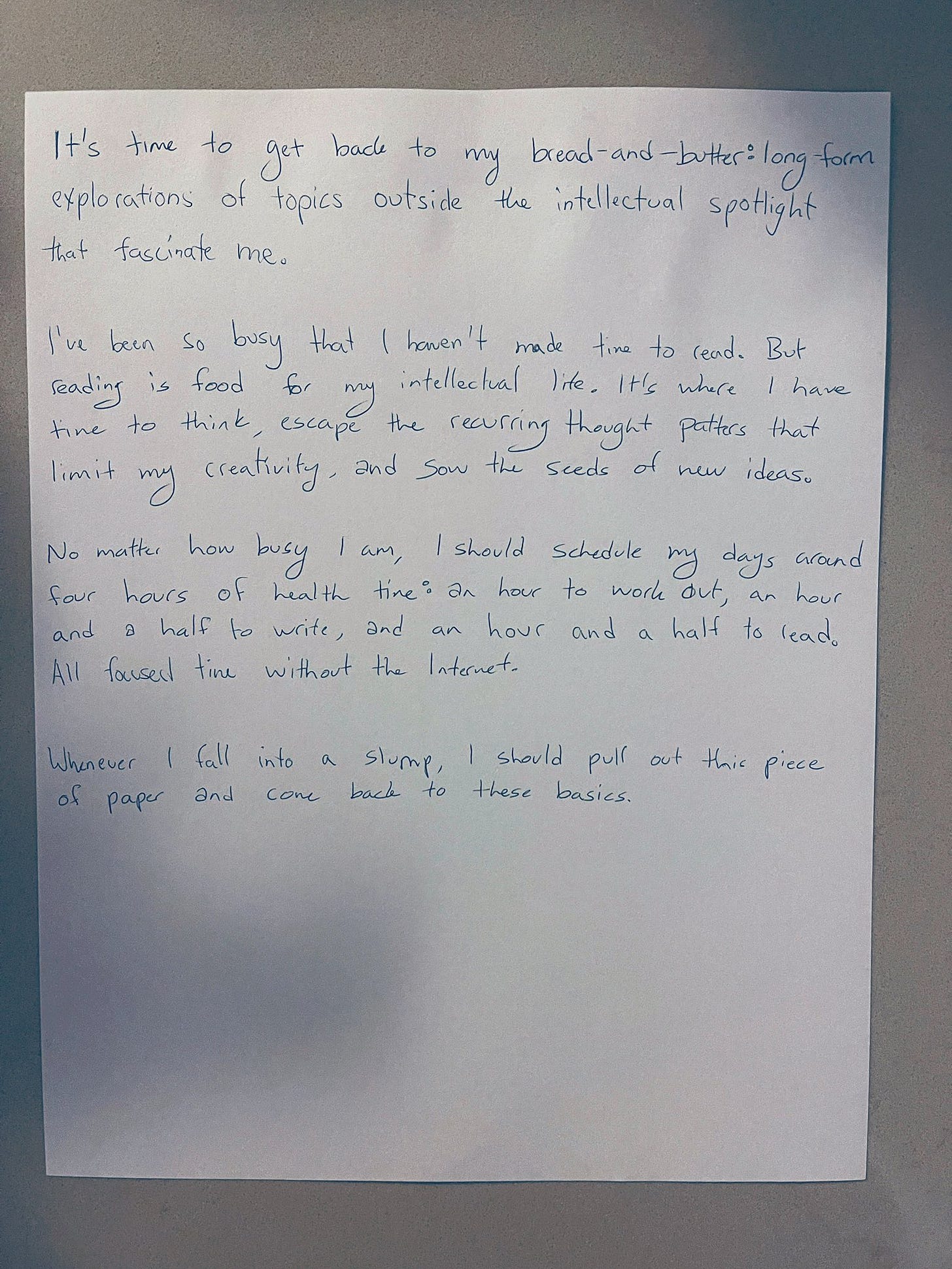Hi, Friends
Welcome to the second issue of my newsletter. It has been a week since I sent out my first and I am really excited. Let’s get right in.
Watch what you take in.
Have you ever said something correctly that you know it isn’t your wordings, but you can't pinpoint exactly where it came from? We’d talk about that in a moment. But first, answer these questions.
Do you have an anti-library??
An anti-library is a collection of books we own but have never read.
How many books /articles do you want to read?
Are they increasing or decreasing?
Now come to think of it, if the numbers are increasing, that means you are adding more than you're reading. If it’s reducing, it's the opposite, and neither is bad.
We are swimming in an ever-increasing content world. The number of content produced every day has increased so much that we can’t possibly finish reading all the books in a lifetime. So what do we do?
As information gets more abundant, and time gets more scarce, the only way is to subtract garbage.
Esther Dyson says it best.
“There’s too much noise out there anyway. The new wave is not value-added; it’s garbage-subtracted.”
Why should we subtract garbage?
Let's look at a hard drive.
A hard drive has a small snippet of everything stored in it. Even after deleting or damage. They are cached in the hard drive and are retrievable. When you delete a file, the data is not erased only the index. And the hard drive writes over the data.
Same goes to our brain. We can recollect anything our eyes sees, and our ear listens if given access. You would not like to be in a position where all your thoughts are garbage gotten from junk content. However, this is what would happen when your content diet is full of garbage.
Garbage in, garbage out.
As portrayed in the movie, Limitless, Eddie Morra (Bradley Cooper) sees the corner of a book and suddenly recalls details of the book because he had glanced through 12 years ago. He was under a drug influence(NZT) which gave him memory access to retrieve such information. The subconscious served up the information he did not know it was there the whole time.
And this is what happens when you recall things you never know was up there in the brain.
For everything you take in, food, content video, audio or text or thought, they are stored, knowing or otherwise.
When you serve up your thoughts, you are reaching for what you have consumed.
I find that almost every thought I have is downstream from what I consume. If you have better inputs, you naturally get better outputs.- James Clear.
Just like you take care of what you eat and avoid junk food, to get your body to optimal health, the same applies to your brain.
The better the content you consume, the higher the upper limit of your brain gets.
David Brooks explains the theory of maximum taste. This theory is based on the idea that exposure to genius has the power to expand your consciousness. If you spend a lot of time with genius, your mind will end up bigger and broader than if you spend your time only with run-of-the-mill stuff.
The maximum taste theory says that each person’s mind is defined by its upper limit—the best that it habitually consumes and is capable of consuming.
How do you cultivate a high-quality information diet?
Head to the reading section.
Pictures
Readings
How to Improve Your Content Diet in 2021
How to go on an Information Diet
Tools and Resources
That wraps up this week’s newsletter.








Nice...From Farouk